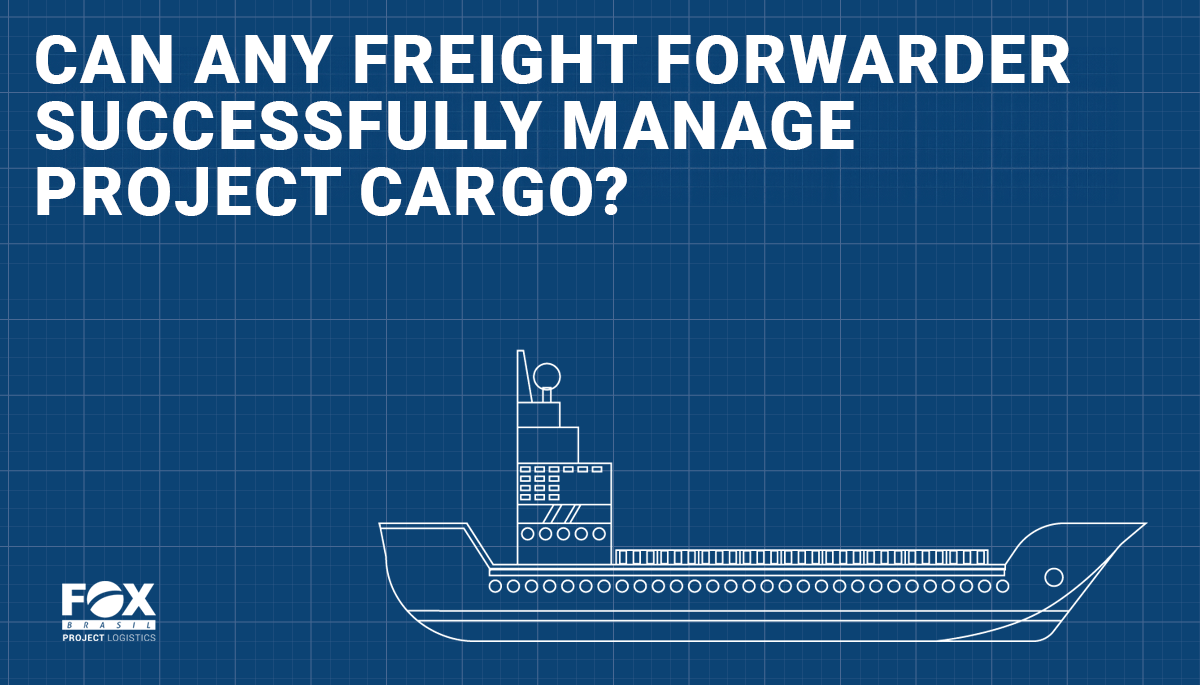Can Any Freight Forwarder Successfully Manage Project Cargo?

Project Logistics
Managing project cargo requires a unique set of skills, experience, and expertise. Project cargo, characterized by its size, weight, and complexity, demands a freight forwarder capable of orchestrating a symphony of moving parts. While many freight forwarders excel in handling traditional shipments, the question remains: can any freight forwarder successfully manage project cargo? Let’s delve into the complexities and challenges associated with project cargo logistics.
Understanding Project Cargo:
Project cargo involves the transportation of large, heavy, and often irregularly shaped items, such as machinery, construction materials, or oversized equipment. Unlike standard shipments, project cargo requires meticulous planning, coordination, and specialized equipment to ensure a seamless transportation process.
Let’s imagine that, for example, we want to build a plane. The plane is split in parts, but the parts of said plane cannot be disassembled. And, while the parts of the plane are in Brazil, we want to build this plane in China. So, we need to move the parts. Piece by piece. Most of the parts are too big to fit inside containers and may not be able to pass under some of the bridges on the way. And all of the pieces need to arrive in the same place, at the same time.
Making this happen is Project Logistics, and it involves a very thorough plan that may take several months to be completed and even more time to be executed.
Challenges of Project Cargo Management:
1. Customization and Tailored Solutions:
– Project cargo often requires customized solutions to accommodate unique dimensions and specifications. Not all freight forwarders are equipped to provide tailored services, making it crucial to choose a partner with a flexible and adaptable approach.
2. Risk Management:
– Project cargo shipments are inherently riskier due to their size and complexity. Freight forwarders must possess a deep understanding of risk management strategies, including insurance coverage, contingency planning, and compliance with international regulations.
3. Multimodal Expertise:
– Successful project cargo management often involves a combination of transportation modes, such as sea, air, and land. Freight forwarders must have the expertise to seamlessly integrate these modes, optimizing efficiency and minimizing delays.
4. Global Network:
– Projects may span across borders, requiring a freight forwarder with a robust global network. Managing project cargo often involves navigating complex customs procedures, varying regulations, and diverse cultural considerations, making a global presence essential.
5. Communication and Coordination:
– Project cargo logistics demand impeccable communication and coordination among various stakeholders, including shippers, carriers, and regulatory authorities. A freight forwarder must act as a central orchestrator to ensure all parties are aligned and informed throughout the project.
Choosing the Right Freight Forwarder:
Given the unique challenges associated with project cargo, selecting the right freight forwarder becomes paramount. Here are key considerations:
1. Experience and Track Record:
– Assess the freight forwarder’s experience in handling project cargo, including successful case studies and testimonials.
2. Specialized Resources:
– Verify that the freight forwarder possesses the necessary resources to handle oversized and specialized cargo.
3. Global Network:
– Ensure the freight forwarder has a robust global network to navigate international logistics challenges seamlessly.
4. Risk Management Capabilities:
– Evaluate the freight forwarder’s risk management strategies, including insurance coverage and contingency planning.
5. Customization and Flexibility:
– Choose a forwarder with a flexible and adaptable approach, capable of providing customized solutions for unique project cargo requirements.
While many freight forwarders excel in traditional logistics, the successful management of project cargo requires a specialized set of skills and resources. Not every freight forwarder is equipped to handle the complexities associated with oversized, heavy, and complex shipments. To ensure the success of project cargo logistics, businesses must carefully choose a freight forwarder with a proven track record, global reach, and the expertise to tailor solutions to unique project requirements. In the world of project cargo, a strategic partnership with the right freight forwarder can make all the difference between success and logistical challenges.